12th Annual Ganga Jamuna Cultural Fest concludes on a grand note
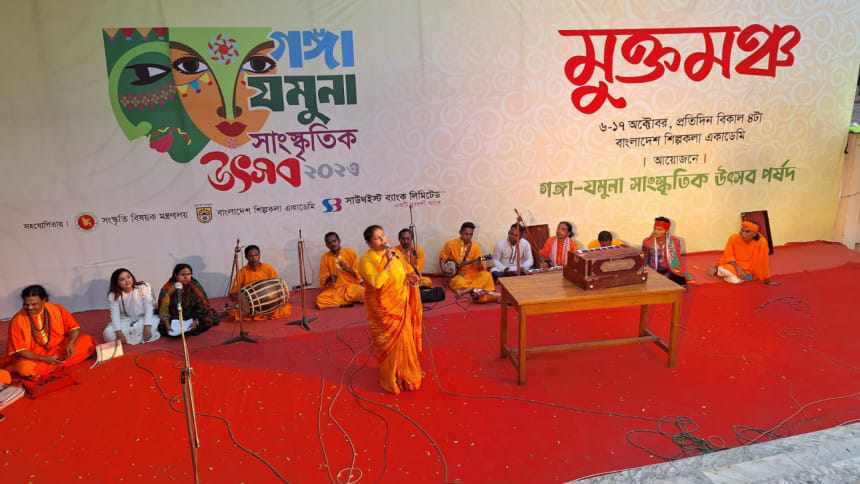
Stellar theatrical performances, distinctive venues, culturally rich content, and a relatively moderate turnout marked the just-concluded 12th edition of the Ganga Jamuna Cultural and Theatre Festival.
The festival committee officially concluded the ceremony with Bangla Theatre's play "Nil Darpan" and the Bangladesh Academy of Fine Arts' (BAFA) dance drama "Nakshi Kathar Math" at the National Theatre Hall of the Bangladesh Shilpakala Academy on Tuesday.
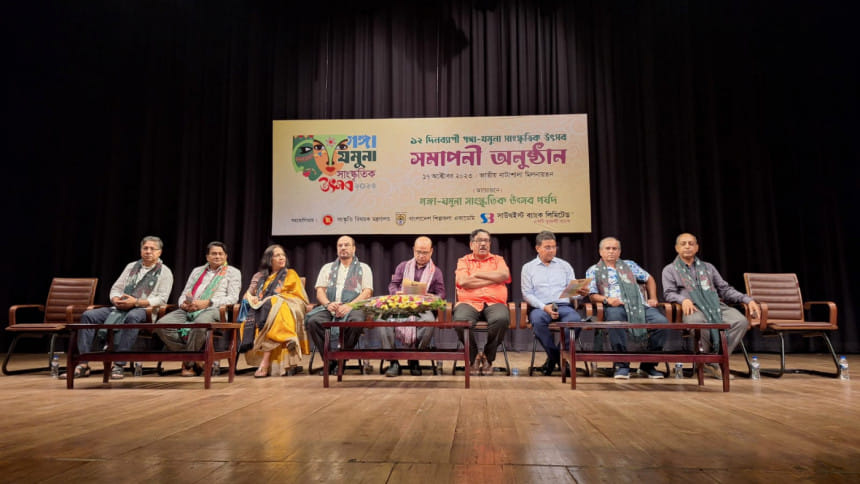
The event wrapped up with a promise to expand its cultural activism through culturally rich practices, performances, and crafts to combat religious extremism and violence towards theatre and cultural artistes across the country, which has seen a rise in recent years.
In its 12th year, the country's most popular and grand theatre festival successfully overcame challenges such as political instability, heavy rainfall, severe traffic congestion in the capital city, and a lack of proper funds, resulting in lower revenue than in previous years.
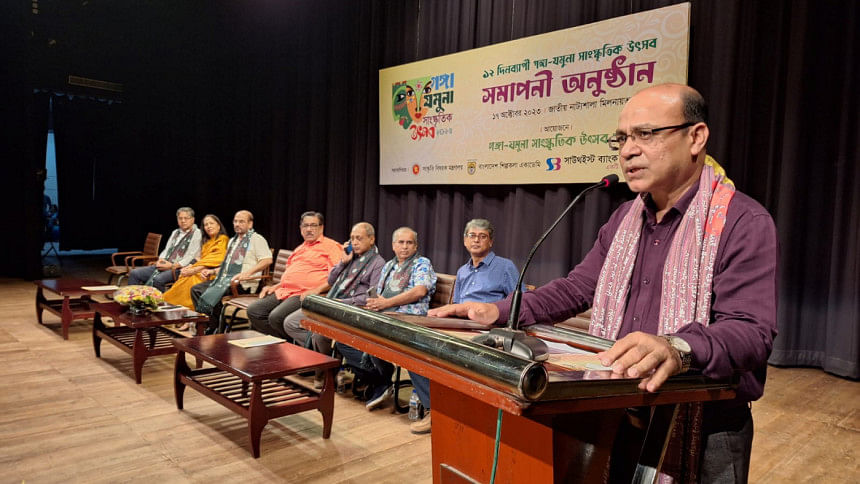
This year's extravaganza kicked off with a sold-out performance of eminent Bangladeshi playwright and thespian Abdullah Al Mamun's directorial work, "Meraj Fakirer Maa".
For 12 consecutive days, the BSA premises hosted a mesmerised crowd who enjoyed outstanding performances such as Prachyanat's "Achalayan", the Indian theatre troupe Ajker Prajannma's "Adhora Madhuri", and Natnandan's "Bishpabaner Geet", all running simultaneously.
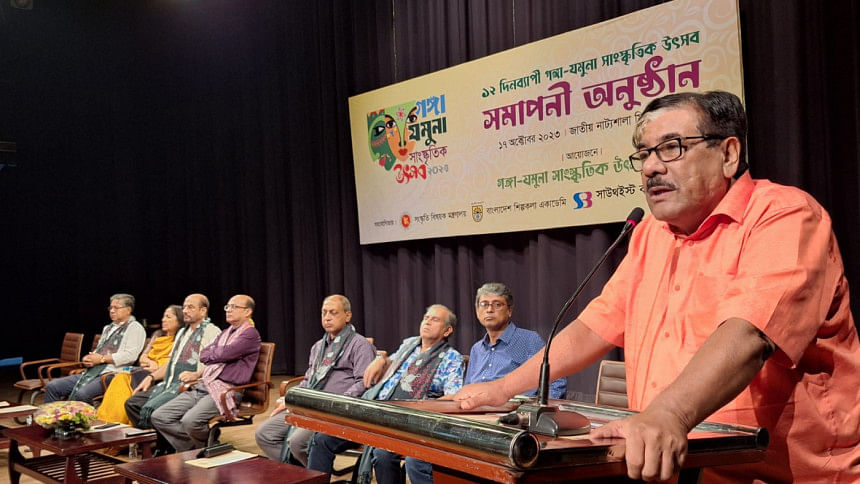
Aside from more elaborate performances in BSA's and Mohila Samity's cozy theatre halls, the festival also featured various street performances, providing an immersive experience for visitors who remained captivated by the acts until the very end, even while holding umbrellas.
Notably, the Indian theatre troupe Aneek's Arup Roy directed "Bhalobasa" and the street theatre troupe Rangapeeth's "Kheya Parer Majhhi" were the most well-received performances of the festival.
The concluding ceremony was presided over by Festival Committee Convener Ghulam Kuddus. Festival Committee Secretary Akhtaruzzaman conducted the programme, while Ministry of Cultural Affairs Secretary Mizanur Rahman, Dhaka Metropolitan Police (DMP) Commissioner Habibur Rahman, and Sommilito Sanskritik Parishad Deputy Secretary Jhuna Chowdhury, amongst others, were also present at the event.
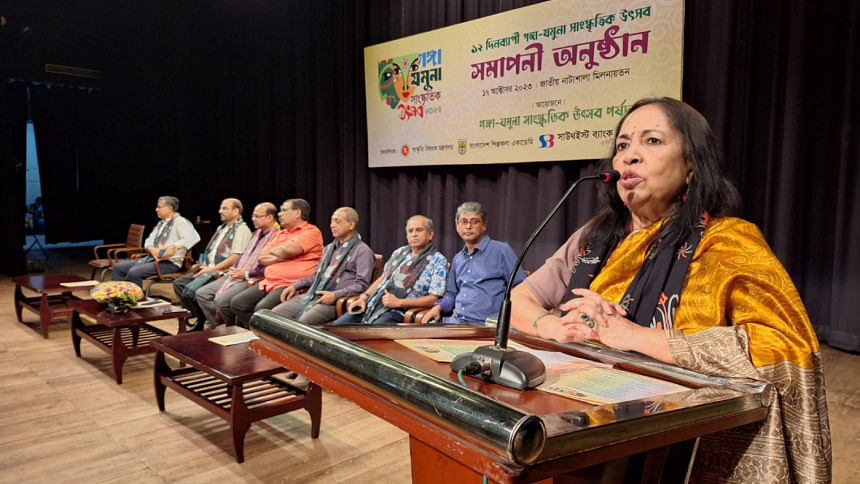
Akhtaruzzaman, secretary of the Festival Committee, remarked, "We, along with our 300 volunteers, did our utmost to provide an immersive experience to our attendees, and I believe we successfully ignited the light of secularism and cultural activism amongst them through this grand festival."
In his address, Ministry of Cultural Affairs Secretary Mizanur Rahman stated, "The government and the ministry are always ready to contribute and support such cultural initiatives, and this festival is no exception. Next year, we will allocate more funds to ensure its expansion and reach amongst the people."
In an interview with the Daily Star, eminent cultural icon and convener of the Festival Committee, Ghulam Kuddus, mentioned, "Despite severe weather conditions, traffic congestion, and other issues, we received a positive response from the audience. Although our audience numbers were lower this year, those who attended thoroughly enjoyed the performances."
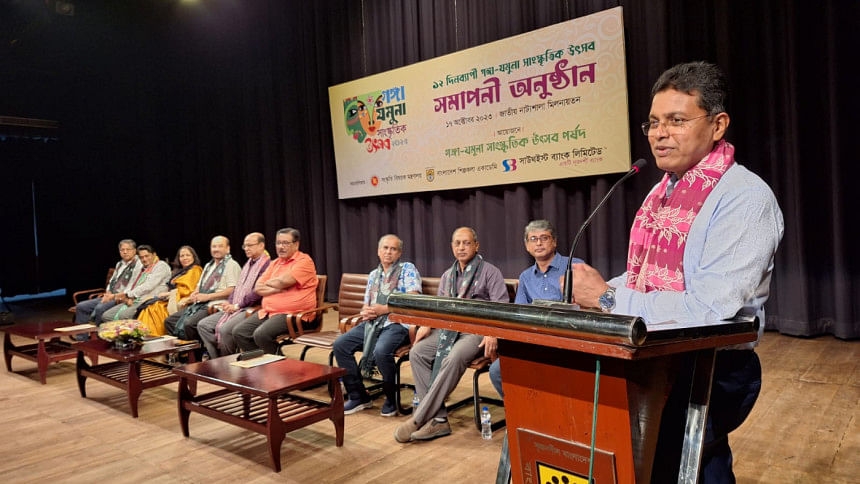
The renowned cultural activist further added, "We deliberately selected popular and select troupes and performers from Bangladesh and India, focusing on culturally rich and socially aware content to inspire progressive cultural ideas based on our heritage of secularism and cultural harmony among our countrymen and I believe we have succeeded."
"Through this festival, we ignited a peaceful flame against religious extremism, which is subtly threatening our cultural identity. We will continue this mission in the years ahead with grander celebrations," concluded the acclaimed cultural pioneer.
The 12-day-long festival featured approximately 4,000 artists and 145 different theatre troupes from Bangladesh and India. This diverse array of performing arts presented a variety of plays, recitals, singing, and dance performances simultaneously at the Bangladesh Shilpakala Academy's Studio Theatre Hall, National Theatre Hall, and Experimental Theatre Hall, as well as at Bangladesh Mohila Samity's Nilima Ibrahim Auditorium for the audiences of Dhaka city.

 For all latest news, follow The Daily Star's Google News channel.
For all latest news, follow The Daily Star's Google News channel. 




Comments